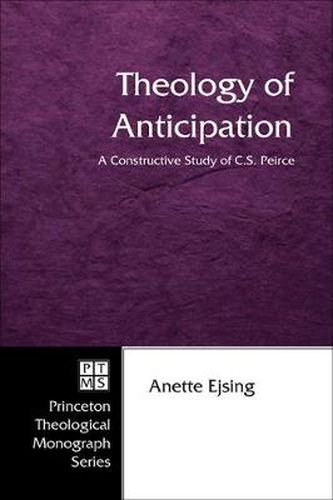Readings Newsletter
Become a Readings Member to make your shopping experience even easier.
Sign in or sign up for free!
You’re not far away from qualifying for FREE standard shipping within Australia
You’ve qualified for FREE standard shipping within Australia
The cart is loading…






This title is printed to order. This book may have been self-published. If so, we cannot guarantee the quality of the content. In the main most books will have gone through the editing process however some may not. We therefore suggest that you be aware of this before ordering this book. If in doubt check either the author or publisher’s details as we are unable to accept any returns unless they are faulty. Please contact us if you have any questions.
Is hope an attitude of wishful thinking or is it a volitional appropriation of what is to come? What does it mean to believe in a divine promise, anticipating but not experiencing its fulfillment? Theology of Anticipation responds to these questions with a constructive study of C. S. Peirce’s philosophy. It explores Peirce’s strong but ambiguous links to the tradition of 19th century classical German philosophy and the unique way he resurrected this tradition’s theoretical content in the American context. Then introducing Wolfhart Pannenberg’s philosophical theology of anticipation in a discussion of Peirce’s epistemological application of the theory of abduction, Anette Ejsing reads these two in light of each other, with the goal of proposing a Peircean theology of anticipation. With this proposal, she offers a new model for how both rational inquirers and believing theologians can take for real in the present what belongs permanently to the future. This model describes the human pursuit of cognitive as well as personal fulfillment (of understanding and meaning) as anchored in a promise of fulfillment, which makes it an expression of anticipatory hope. Considering Peirce’s religious writings of systematic importance for his philosophy, Theology of Anticipation offers critical comments to two existing interpretations of Peirce’s philosophy of religion: Michael L. Raposa’s theosemiotic and Robert S. Corrington’s Peircean theology of divine potentialities.
$9.00 standard shipping within Australia
FREE standard shipping within Australia for orders over $100.00
Express & International shipping calculated at checkout
This title is printed to order. This book may have been self-published. If so, we cannot guarantee the quality of the content. In the main most books will have gone through the editing process however some may not. We therefore suggest that you be aware of this before ordering this book. If in doubt check either the author or publisher’s details as we are unable to accept any returns unless they are faulty. Please contact us if you have any questions.
Is hope an attitude of wishful thinking or is it a volitional appropriation of what is to come? What does it mean to believe in a divine promise, anticipating but not experiencing its fulfillment? Theology of Anticipation responds to these questions with a constructive study of C. S. Peirce’s philosophy. It explores Peirce’s strong but ambiguous links to the tradition of 19th century classical German philosophy and the unique way he resurrected this tradition’s theoretical content in the American context. Then introducing Wolfhart Pannenberg’s philosophical theology of anticipation in a discussion of Peirce’s epistemological application of the theory of abduction, Anette Ejsing reads these two in light of each other, with the goal of proposing a Peircean theology of anticipation. With this proposal, she offers a new model for how both rational inquirers and believing theologians can take for real in the present what belongs permanently to the future. This model describes the human pursuit of cognitive as well as personal fulfillment (of understanding and meaning) as anchored in a promise of fulfillment, which makes it an expression of anticipatory hope. Considering Peirce’s religious writings of systematic importance for his philosophy, Theology of Anticipation offers critical comments to two existing interpretations of Peirce’s philosophy of religion: Michael L. Raposa’s theosemiotic and Robert S. Corrington’s Peircean theology of divine potentialities.